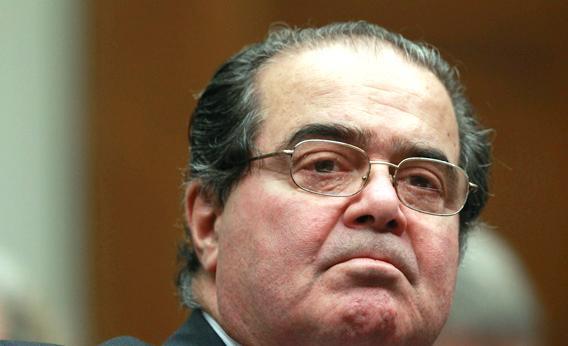Things look pretty bleak for those who want to limit the role of money in politics. This week, the Supreme Court agreed to hear a case which could make it harder for the government to limit individual contributions directly to candidates, and it may take yet another case which could allow corporations to give directly to candidates (going beyond the court’s decision in Citizens United allowing unlimited corporate independent spending to “independent” groups like super PACs).
While the president has talked a good game about fixing the broken public financing system for presidential campaigns, rewriting the disclosure rules to make them more effective, and repairing the Federal Election Commission, he has not done anything to actually further these goals. Indeed, he’s taking the unprecedented step of converting his campaign committee into a full-time political organization, open to taking unlimited sums from any American person, union, or corporation willing to contribute. Want access to the president’s policy people? Why not give $1 million to OFA (formerly “Obama for America” and now “Organizing for Action”)?
I suspect, especially given recent tweets by Obama advisor David Axelrod about how unlimited contributions to politicians don’t seem so bad, that despite the base-pleasing rhetoric about the need for campaign finance reform, the president and his strategists would be plenty happy with a system where candidates could take contributions from any source in any size, with only disclosure required.
Meanwhile, the FEC is in terrible shape. A few years ago in Slate I declared it “as good as dead” and things have only gotten worse. The three Republican commissioners are ideologically opposed to a working campaign-finance system, and often split with the three Democrats, paralyzing the agency.
Congress is no help. There is some inkling that some Republicans would trade a fix to the disclosure rules for lifting the caps on contributions to candidates, but it is not clear that congressional Democrats will go along.
And while there have been numerous proposals (including some from Members of Congress) to amend the Constitution to reverse Citizens United, they have virtually no chance of passing, which requires the approval of two-thirds of Congress and three-fourths of the states. And the proposals in any case could have unintended consequences, such as interfering with freedom of the press.
So maybe it is just time to give up on campaign finance reform, and move to a system of unregulated money, with instant disclosure. Sure, this raises the danger of corruption, of a quid pro quo of money for favors and votes. And that could cause the public to lose more faith in the integrity of our elected officials, and increase inequality in America, by giving the people with the biggest checkbooks unparalleled access to politicians and legislative sausage-making. But what alternative do we have?
The alternative is not to give up hope, and there is a small remaining glimmer that the Supreme Court could come to the rescue.
The Supreme Court’s approach to campaign finance made a 180-degree turn when Justice Sandra Day O’Connor left the bench in 2004 and was replaced by Justice Samuel Alito. While O’Connor was on the court, more and more tough reforms (including the far-reaching McCain-Feingold law) survived constitutional challenge. In the Alito era, the court has struck down or limited all the challenged campaign finance laws (aside from disclosure requirements) that have come before it.
But all of these rulings were 5-4. It is clear that the four liberal-moderate justices—Ginsburg, Breyer, Sotomayor, and Kagan, all appointed by Democratic presidents—still think Congress has the power to limit campaign money.
Two of the five conservative justices appointed by Republican presidents, Anthony Kennedy and Antonin Scalia, are both in their mid-70s. The odds are that within the next decade, at least one of them will leave the court. We don’t know that for sure, but it seems fairly likely. If a Democratic president is in office when the next conservative justice retires, and picks a liberal to replace him, there’s a chance that the court could do another 180.
It is kind of odd to say that the easiest way to change the meaning of the Constitution is not by constitutional amendment or constitutional convention but by changing one member of the Supreme Court. But in the realm of campaign finance, as in so many ideologically driven cases, conservative and liberal justices simply have different worldviews and balance the competing interests differently.
Campaign reformers need to keep the pressure on in order to plan for the next Supreme Court. They should think more about what a reasonable campaign finance regime would look like. Conservatives are absolutely right that campaign finance laws can boost incumbents and stifle political competition. And rules that distinguish media-owning corporations from other companies, for purposes of speaking about candidates, are under increasing pressure in the Internet era.
The key is to design a system that prevents corruption, promotes public confidence, avoids legislative conflicts of interest, and promote political equality, all without squelching First Amendment rights. It is not an easy task. Now is the time for thinking all of this through—and for defending what remains of federal campaign finance laws in the courts. The time for action will come later, we can hope.
